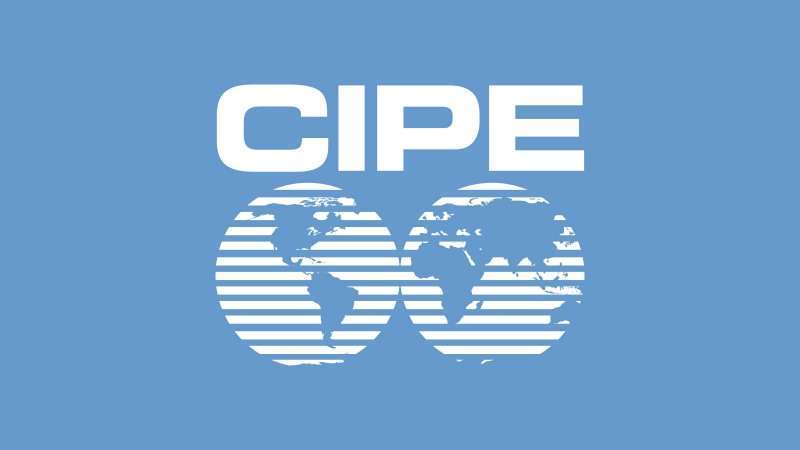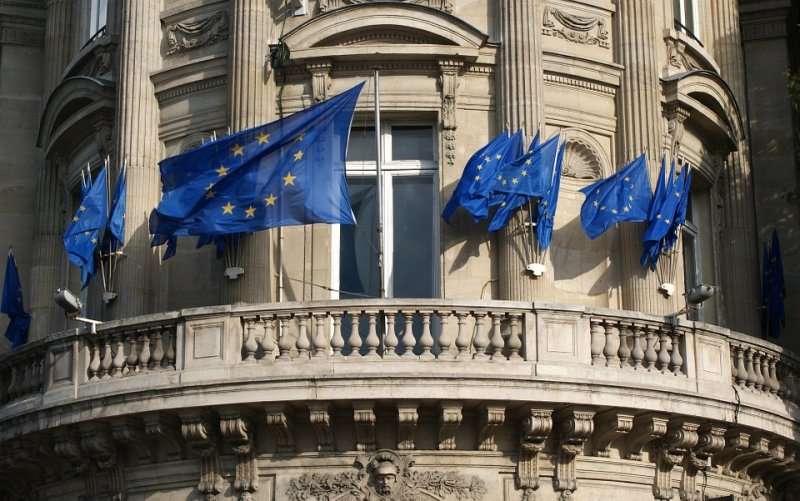This conference is trying to establish itself as a key event for the understanding of threats and risks to information systems, the development of a strong security culture, and incident investigation.
For more information on this event, please click here.
2019 International Cyber Security and Intelligence Conference
The International Cybersecurity and Intelligence Conference (ICSIC) provides a rare opportunity for global experts in Cyber security, Intelligence, Counter-Terrorism, National Infrastructure, Industry, Cyber Operations research, Law enforcement, and Legal Practitioners to proffer unified ideas and best practices on cyber safety, attacks prevention and secured cyber world. ICSIC, is a unique cyber security and intelligence conference that features high profile speakers from cyber security, privacy, intelligence, national critical infrastructure and counter-terrorism. Attendees will have a unique privilege to interact with some of the best brains in the industry.
For more details on the event, please click on ICSIC.
CIPE to Preview New Policy Guide on Digital Economy at the Forum on Internet Freedom in Africa
Announcement |
The Center for International Private Enterprise (CIPE) will preview a new resource titled Digital Economy Enabling Environment Guide, at the Forum on Internet Freedom in Africa (FIFAfrica) 2018, set to take place 26–28 September, 2018, in Accra, Ghana. This preview comes ahead of a formal launch at the upcoming conference of the Aspen Network of Development Entrepreneurs (ANDE), on 2–4 October, 2018 in Tarrytown, New York.
The guide was developed in collaboration with the New Markets Lab (NML) and focuses on four priority topics that serve as the building blocks of digital economy: Consumer Protection, Data Protection, Cybersecurity, and Electronic Transactions (e-payments and e-signatures). The guide explains key regulatory considerations and helps policymakers, the private sector, and other stakeholders reach a shared understanding of these often complex topics in order to engage in constructive policy dialogue.
Further, the guide includes Legal Deep Dives with detailed information on the applicable international and regional frameworks; examples of different regulatory approaches used around the world; considerations for implementation and enforcement of laws and regulations; and relevant institutional frameworks that influence the digital economy.
Anna Kompanek, CIPE Director for Global Programs, will highlight the section of the guide at a FIFAfrica session on Consumer Rights Protection in the Digital Age, scheduled for 28 September. “Previewing the Digital Economy Enabling Environment Guide at FIFAfrica provides a valuable opportunity to support public-private dialogue efforts throughout the continent on issues key to shaping democratic discourse on digital economy,” she said.
Going forward, CIPE and NML will leverage this new resource in their respective work to facilitate crucial multi-stakeholder policy conversations and regulatory reforms in countries around the world.
CIPE strengthens democracy around the globe through private enterprise and market-oriented reform in order to expand access to opportunity for all citizens and help build democracies that deliver. By working with private sector organizations, CIPE is helping businesses find their voice in policymaking on a range of digital economy issues.
NML is a non-profit center for law, development, and entrepreneurship that houses comparative expertise and an international team of lawyers focused on socially accountable economic, legal and regulatory reform. NML sees law as a driving force that can generate entrepreneurship and economic development.
Council of Europe to Host Session on Cybercrime Legislation in Africa at the Forum on Internet Freedom in Africa 2018 (FIFAfrica18)
Announcement |
The Forum on Internet Freedom in Africa 2018 (#FIFAfrica18) is pleased to announce the participation of the Council of Europe (CoE), through its Cybercrime Division, at the landmark event which is set to take place in Accra, Ghana, at the end of September.
The panel aims to contribute to the on-going efforts on harmonisation of national cybercrime laws with international and regional standards in the African continent, and provide a specific focus on human rights safeguards. International experts, with background on drafting, implementing and enforcing cybercrime legislation, will facilitate an interactive discussion with the participants by introducing the current state of cybercrime legislation in the African continent, debating the progress made in the recent years and discussing the entailed human rights challenges.
FIFAfrica convenes various stakeholders from the internet governance and online rights arenas in Africa and beyond to deliberate on gaps, concerns and opportunities for advancing privacy, access to information, free expression, non-discrimination and the free flow of information online. This year’s forum, which runs from September 26 to 28, is hosted by the Collaboration on International ICT Policy for East and Southern Africa (CIPESA) and the Media Foundation for West Africa (MFWA).
According to recent statistics, Africa is exhibiting one of the fastest growth rates in Internet penetration worldwide, with digital connectivity that has almost tripled in the last five years. In the same period, both governments and private sector entities in Africa have been experiencing an equally increasing trend of cyber-attacks.
The CoE has taken steps to protect the pillars of democracy in the digital age particularly as large-scale theft of personal data, computer intrusions, bullying, harassment and other forms of cyber violence, or sexual violence against children online, affect the extent to which the use of online tools enables participation in democratic processes. Moreover, it is notable that hate speech, xenophobia and racism may contribute to radicalisation, leading to violent extremism.
Attacks against computers used in elections and election campaigns are attacks against democracy. Daily attacks against critical information infrastructure affect national security and economic and other national interests as well as international peace and stability. Moreover, evidence in relation to fraud, corruption, murder, rape, terrorism, the sexual abuse of children and, in fact, any type of crime may take the form of electronic evidence, which is volatile, often intangible and probably in other jurisdictions. And accessing such evidence also has implications for human rights and the rule of law. Effective, legally compliant and robust procedures for the identification, collection and preservation of electronic evidence are therefore essential.
It is in regard to these trends that the CoE will host a panel discussion at FIFAfrica18 that will include reference to the Budapest Convention. The convention is an international treaty that aims at providing substantive legislation and procedural powers for criminal justice authorities to effectively tackle cybercrime, while upholding rule of law and human rights. Since its entry into force in 2004, the Budapest Convention has proven to be a solid baseline for enhanced cooperation across borders, and many governments in Africa, as well as in the rest of the world, have undertaken legal reforms using it as a guideline.
The Stampede for SIM Card Registration: A Major Question for Africa
By Edrine Wanyama |
It is anticipated that by 2025, there will be at least 5.9 billion mobile subscribers accounting for 71% of the world’s population. As of 2017, Sub-Saharan Africa (SSA) had a mobile subscription rate of 44% which is projected to reach 52% by 2025. Further, SSA’s mobile internet penetration by 2017 stood at 21% and is anticipated to increase to 40% by 2025. However, the region has registered the largest number of cases of mandatory SIM card registration yet it suffers some of biggest challenges in personal data protection and privacy.
The benefits of SIM card registration include facilitation of citizens’ access to e-Government services, easy identification of an individual’s mobile number and number portability when switching networks. In addition, it aids combating cybercrime including terrorism by limiting covert communication and promotes good relations between consumers and service providers by simplifying identification of consumers and their use of SIM services. Accordingly, many governments argue that mandatory SIM card registration is for purposes of safeguarding digital and physical security. However, critics argue that when SIM card registration is effected without due safeguards, it poses a threat to privacy and freedom of expression.
Indeed, in 2013 Mexico repealed its policies on SIM card registration “after a policy assessment showed that it had not helped with the prevention, investigation and/or prosecution of associated crimes.” Finland has not enforced compulsory SIM card registration and nonetheless, through voluntary mobile signatures, service providers has succeeded in facilitating user’s access to relevant retail, banking and e-Government services.
Globally, over 90 countries conduct compulsory SIM card registration yet some remain without clear policy on its implementation. Amidst criticisms that mandatory registration does not necessary combat cybercrime, as criminals take the necessary precautions to avoid being detected and circumvent mandatory SIM card registration, African countries continue to proactively enforce SIM card registration. Among the prevailing challenges on the continent is the difficulty in validating identity documents in an environment with a wide range of service providers who create room for potential circumvention.
Mandatory registration has negatively affected access and usage of mobile telecommunication services due to the tedious process which entails the production of documentation such as passports and national identity cards prior to registration, which sometimes results in failure to attain a SIM card, disconnection, or deactivation of SIM cards.
Additionally, there have been repetitive calls for registration of SIM cards in countries such as Uganda and Nigeria with personal data being collected more than once. In Uganda, despite government explanation that SIM card verification is aimed at ensuring secure and safer communications, citizens have unanswered questions on the exercise. Suspicion arises due to a fresh validation of SIM card registration using national identity cards subsequent to registration which was initially done using valid documents such as students’ identity cards, driving permits and passports.
Double collection of personal data may partly imply collection of data beyond what is necessary for the purpose contrary to the internationally established data protection principles such as those set out in the Organisation for Economic Co-Operation and Development (OECD) Data Protection Principles. Further, there is no guarantee of individual privacy as most of the African countries do not have data protection laws. Moreover, most of the existing data protection laws do not meet internationally recognised standards considered sufficient to guarantee personal data protection and are therefore regarded as offering moderate or limited protection.
Meanwhile, efforts to buttress data protection in Africa have not yielded much. Out of 54 countries on the continent, only 14 have data protection laws (Angola, Benin, Burkina Faso, Mali, Gabon, Ghana, Ivory Coast, Lesotho, Madagascar, Morocco, Senegal, South Africa, Tunisia and Zimbabwe). A few others such as Uganda, Kenya, Nigeria, Tanzania and Niger have Bills. Regional efforts have also not yielded much. The Convention on Cyber Security and Personal Data Protection which was adopted by the African Union in 2014 has registered only 10 signatories (Benin, Chad, Congo, Ghana, Guinea-Bissau, Mauritania, Sierra Leone, Sao Tome & Principe, Zambia and Comoros) and one ratification by Senegal.
Ultimately, there is need to reconcile state interests with citizens’ personal data and privacy rights. Mandatory registration, especially in the absence of clear registration guidelines and the lack of data protection laws, puts personal data at risk. African governments need to learn from other jurisdictions such as Europe with regards to processing of personal data as part of SIM card registration. In enforcing SIM card registration, there should be a clear set registration timelines, clear and unambiguous registration requirements.



